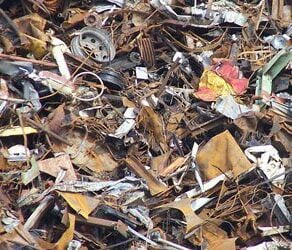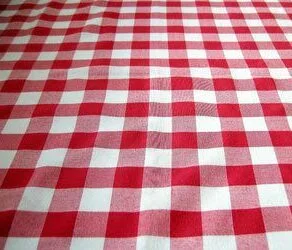At one time or another, most of us will require sutures (or stitches). Sutures are meant to hold a wound closed, keeping out dirt and other contaminants that can lead to infection, until the wound has a chance to heal. The trick is to keep the sutures themselves as clean as possible so that they do not become the source of infection. Generally, your doctor or other health care professional performing the suturing will advise you as to the best way to keep the sutures clean, and you should refer FIRST to the advice of your doctor or health care professional.
one time or another, most of us will require sutures (or stitches). Sutures are meant to hold a wound closed, keeping out dirt and other contaminants that can lead to infection, until the wound has a chance to heal. The trick is to keep the sutures themselves as clean as possible so that they do not become the source of infection. Generally, your doctor or other health care professional performing the suturing will advise you as to the best way to keep the sutures clean, and you should refer FIRST to the advice of your doctor or health care professional.
What You Will Need:
- Distilled water
- Mild antibacterial soap
- Basin
- Soft wash cloth
- Soft, dry towel
- Gauze or Bandages
- Surgical tape
The Cleaning Process:
- Check the instructions for the care of your sutures to make sure it is okay to get them a little wet; many times, you must keep your wound completely dry for a day or so. If you are unsure, check with your doctor or other health care professional before proceeding.
- Fill your basin with distilled water and add a small amount of mild antibacterial soap to form a sudsy mix. Distilled water is recommended over tap water because it is contaminant-free, whereas tap water may contain chemicals or other contaminants, which can be harmful, especially if your sutures are fresh.
- Soak your wash cloth in the sudsy water and wring it out thoroughly so that it is just damp.
- Gently wash the suture and the area around the sutures, being careful not to snag or pull the sutures with the washcloth. DO NOT saturate the sutures with water—the washcloth should be barely wet.
- Pat the area dry with a soft towel.
- If your wound is to remain covered (again, check your care instructions or contact your doctor or health care professional), place the appropriate size bandage or gauze over the wound and secure with surgical tape.
- The sutures should typically be cleaned twice a day.
Additional Tips and Advice
- If ever you are in doubt about the proper way to clean your sutures, DO NOT HESITATE to contact your doctor or health care professional.
- In lieu of, or in addition to soap and water, your doctor may recommend that you use hydrogen peroxide or Betadine solution to swab the sutures. These items can be purchased at most drug stores.
- Unless expressly permitted by your doctor or health care provider, avoid activities that will cause your sutures to be submerged in water (i.e. bathing, swimming, showers, etc.)
- Always keep a keen eye for any signs of infection (such as redness, hot to the touch, swelling, puss, or unusual pain). If you notice any signs that may indicate an infection, see your doctor or health care provider immediately. As a rule of thumb when dealing with any wounds, it is better to be safe than sorry—if you have the slightest doubt as to whether there is an infection in the works, contact your doctor or health care provider right away. For more information about the signs and treatment of wound infections, review the relevant articles listed at World Wide Wounds and the relevant article at the Journal of the American Medical Association website.
- Make sure you follow up with your doctor or health care provider for suture evaluation/removal; DO NOT postpone or skip your visits.
- NEVER try to remove your sutures yourself unless you are provided with the proper instructions and tools from your doctor.
- If one of your sutures falls out, contact your doctor or health care provider immediately, and they will instruct you as to what to do.
- NEVER apply make-up or any cosmetic problems to the sutured area as that may increase the risk of infection.
- If your sutures are in an awkward or hard to reach spot, you STILL need to clean them; employ the assistance of someone else with whom you feel comfortable to help you with your task, but DO NOT skip cleaning the sutures.









Do not get the wound wet for at least three days after they are placed. Tap water is actually okay to use according to studies in medical journals. Use hydrogen peroxide and water (50/50 mixture) and apply it with Q-tip to remove the material from around the wound.
Generally speaking, if a wound is in an area that becomes dirty easily or is rubbed by clothing (ex: hands and knees) you should keep it covered with a bandage or gauze and tape. This will prevent infections caused by dirt and irritations caused by clothing rubbing up against sutures.
My stitches are on my back; no one to help me. Can I just rinse with peroxide?
Marc,
You should not use peroxide. If you have the water-soluble stitches, the peroxide can cause them to break down more quickly than water will. Regardless of what kind of stitches you have, it still isn’t a good idea though. According to The New York Times, “researchers have found that hydrogen peroxide has little ability to reduce bacteria in wounds.” Also, it can delay healing and increase the potential for scarring.
You could ask a neighbor. You never know; they could need your help to clean their stitches next week. Another idea is to put out an ad on Craigslist for a nursing student who wants some practice/experience/a resume recommendation/etc.
If you try to clean it yourself, depending on what kind of stitches you have, you may want to be careful about what type of washcloth you select, as the kind with tiny loops could catch on a stitch (which would be a bigger problem if you’re alone than if someone else is cleaning it). A cotton swab might help give you an extra couple inches of reach. Or, you could pick up the longer throat swabs at a medical supply store.
Source: ScienceDaily – Hydrogen Peroxide Could Cause Absorbable Sutures To Come Apart, Researchers Report
Source: The New York Times – The Claim: Hydrogen Peroxide Is a Good Treatment for Small Wounds
Source: Livestrong – How to Reduce Scarring From Stitches
Source: CNN – Medical Myths Don’t Die Easily
Hi guys. Please could you help. My three-year-old son fell head-first to the ground and received 3 stitches on his forehead, but now the gauze is stuck on with dry blood. How could I remove it gently without baby crying? Please advise. Thanks.
Nash,
It helps to soften the gauze/dried blood with some water or saline. Best of luck!
Source: eHow – How to Remove Gauze That Sticks to Wounds
I hope someone will still see this, but I have five stitches on my hand, my palm, to be specific, and I was told that after 24 hours, I shouldn’t cover it with anything so that the wound will dry over quickly and I have to return a week later to have them removed. How do I make sure to keep it as clean as possible? I’m sorry, I just tend to get paranoid when it comes to these things sometimes. I was told that I can work, by the way, since I work in an office.
I have 3 stitches on top of my nose. Can I clean them with saltwater because I don’t have anything else to clean? The doctor didn’t say anything about it and I must go back Friday to remove them.
Gail,
As long as it’s ok for you to get the stitches wet, then yes, you can use salt water. If you are making your own salt water solution though, it would be best to make it with distilled water rather than tap water.
Source: U.S. National Library of Medicine – Surgical wound care – open
My mother was having five stitches in her underarms and now they have been cut, but still she has pain in the underarms. So, can she use soap now as the stitches have been cut but still she has pain?